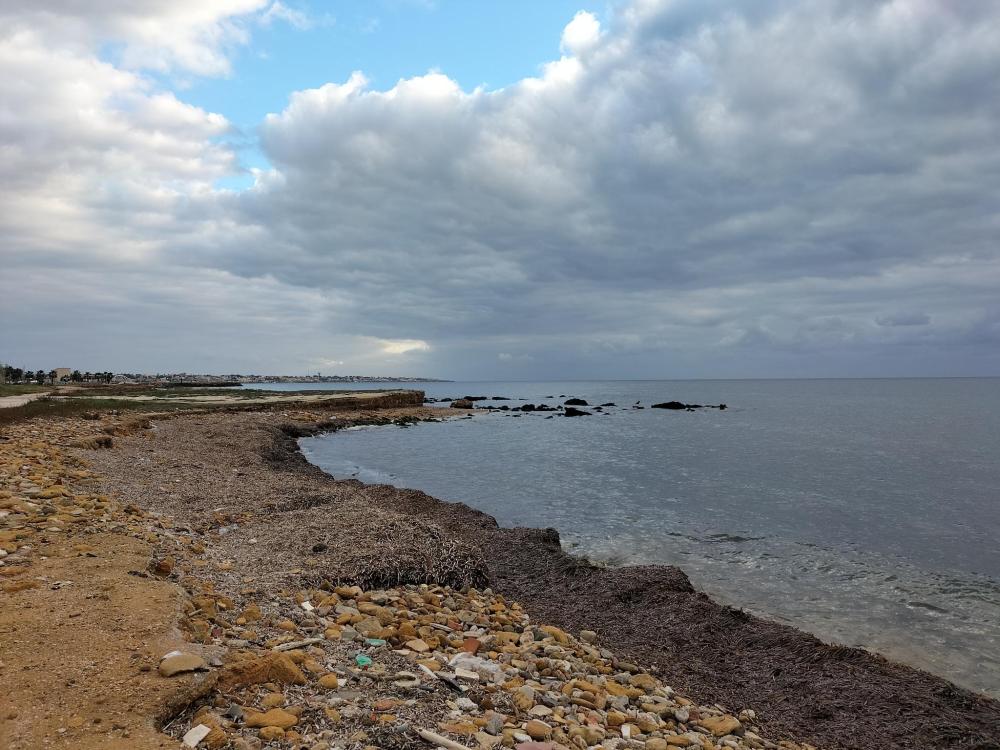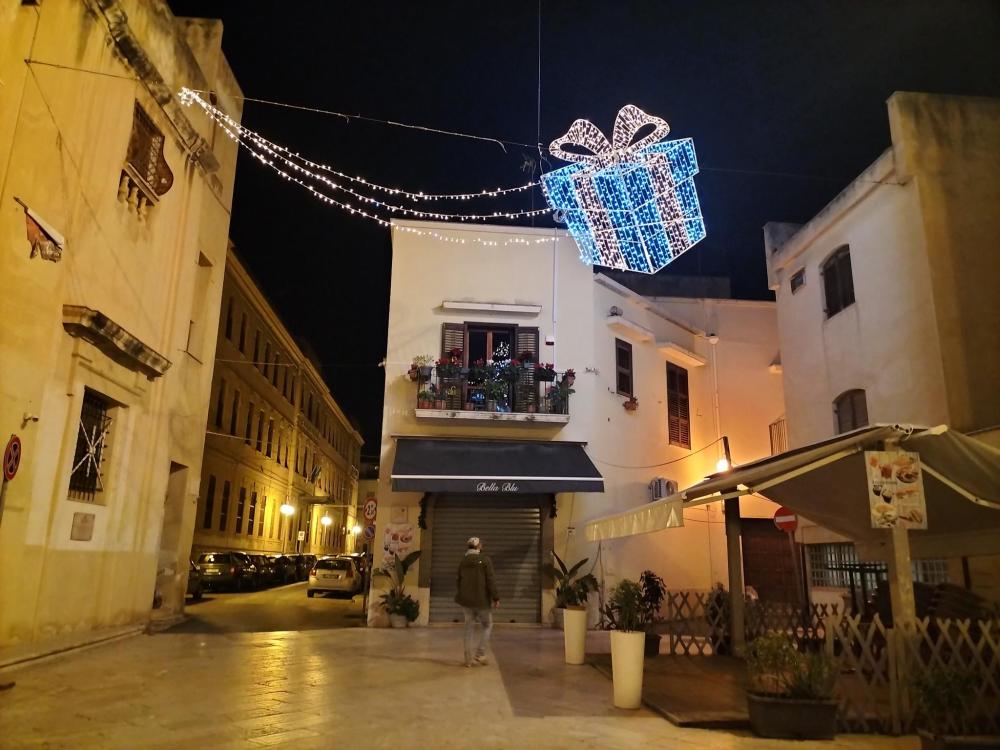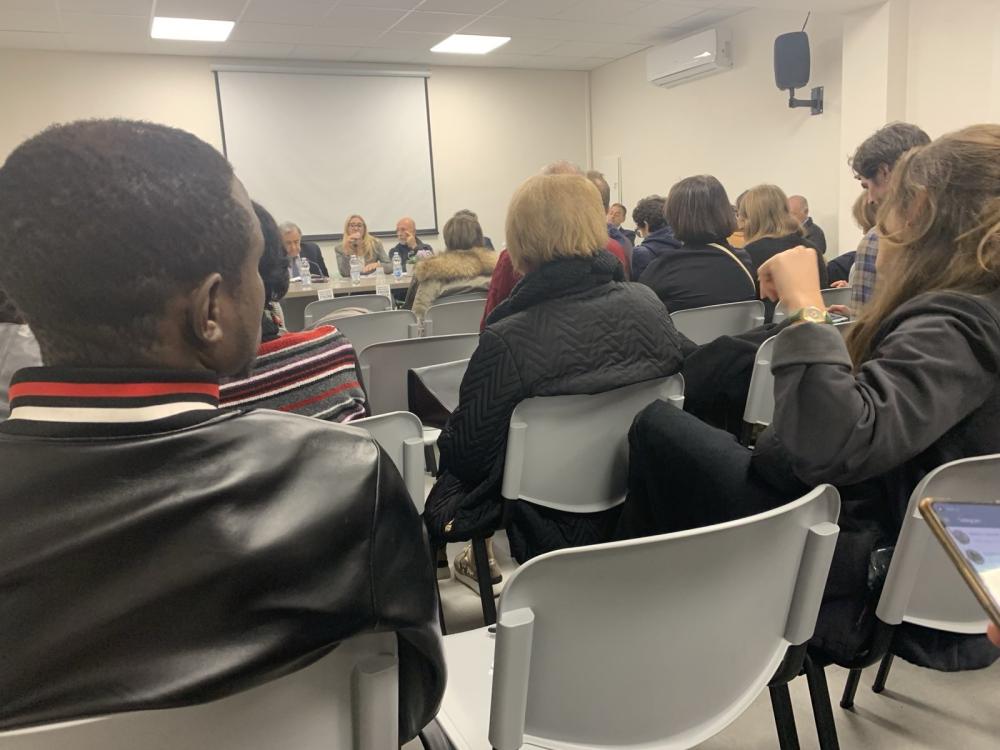From Tripoli to Sicily: Evacuate human rights defenders from Libya. Impressions of a migration policy conference in Mazara del Vallo, 29.-30.11.2024
Palermo, 18.12.2024 - Despite the major traffic strike, our bus leaves Palermo for Mazara del Vallo on time on 29 November. It is early afternoon and the small coastal town in western Sicily looks rather sleepy on this grey Friday. After a quick espresso at the bar and a walk along the closed shutters, we soon arrive at the conference centre. A travelling exhibition tells the stories of three migrants in Libya with impressive pictures. Some of the participants seem to know each other; we observe enthusiastic greetings here and there. Half an hour later than planned, the conference finally opens: Mazara del Vallo is regarded as an example of successful integration and can be seen as a bridge between Europe and Africa. The town is the closest to the Tunisian capital Tunis and has a centuries-long history of migration, as we are to learn later in various speeches.
The organiser Refugees in Libya will be the central player at the start of the conference. It is a self-organised association of human rights activists, most of whom have experienced migration themselves and have made it their mission to actively support people in similar situations. Politicians and journalists are also present, including the former mayor of Palermo and current MEP Leoluca Orlando and the mayor of Mazara del Vallo, Salvatore Quinci. In addition to emphasising Mazara del Vallo as a multicultural city, the focus is on the political demands and personal experiences of refugees and activists.
Mahamat Daoud Abdelrassoul, Vice President of Refugees in Libya, begins by highlighting the history of the organisation: in the course of 2021 and 2022, refugees in Libya united in a peaceful protest for human rights and freedom in front of the UNHCR office in Tripoli in response to the violent eviction of their settlements. However, their protest was violently dispersed by Libyan militias before the UN Refugee Agency responded. Unfortunately, conditions in Libya have not improved significantly since then. Daoud Abdelrassoul also talks about his own escape, which brought him to Lampedusa after a four-day boat crossing of the Mediterranean from the Tunisian coast.
Over the course of the evening, the panel discussion focuses on topics such as the public perception of migration, which is often portrayed as a threat for political reasons. However, according to the participants, migration should rather be seen as an opportunity. Europe's negative demographic development will be detrimental to the region in the long term, which is why migrants could fill important positions in the labour market and thus regions particularly affected by emigration, such as Sicily, would benefit. The development of cities such as Mazara del Vallo and Palermo can be seen as a positive example of this.
Other speeches focus on the causes of increased migration. Global politics and economics are based on inequality, especially the relationship between Europe and Africa. While European countries benefit greatly from the exploitation of Africa's resources, African countries have to pay a higher price for their own raw materials than Europeans. Poverty is the result of this exploitation. In order to counteract this development and establish a fair dialogue, Europe must finally engage with Africa on equal terms. Because, according to Leoluca Orlando, the Mediterranean sea unites its adjacent countries more than it divides them. The Mediterranean region is a mosaic and taking in refugees is a display of respect for this mosaic, Orlando states. One could take Sicily as an example here, where a right to reception and integration has been established by parliament. Leo di Simone, the director of the Peace Centre and thus host of the conference, also reminds the audience of the equality of all people: Everyone is a father, son or brother to someone. Lam Magok Biel Ruei from Refugees in Libya echoes this claim to equality and directly calls on MEP Orlando to bring refugees to the conference table every time migration is discussed in the EU in order to negotiate with them on equal terms. Future conferences will show whether this actually happens.
After six hours of intensive speeches, we leave the conference hall at around 8 pm. The impressions of the first evening remain diverse, as the topics addressed are much more expansive than the event title suggests. A holistic approach to the various causes of migration and the impact of global inequality is discussed, which in their entirety provide an insight into the scope of the topic of migration.
With an espresso at the same bar, we start the next item on the programme on Saturday morning with curiosity. After the political contributions of the previous evening, the focus is now much more on private and civil society involvement in the field of sea rescue, refugee support and political work for freedom of movement and against violence against women on the move. For example, the Italian NGOs Mediterranea Saving Humans and Maldusa report on their work in sea rescue and first contact on Lampedusa. Both complain about the increasing restrictions placed on their work by Italian legislation. The Alarm Phone sea rescue hotline is also present and agrees that the situation is deteriorating. However, it is important to remain aware of the absurdity of the situation: The fact that people are dying in the Mediterranean is avoidable! The abolition of the visa regime, which so significantly restricts the freedom of movement of the majority of the world's population, would make it possible to cross the Mediterranean safely with a ferry or airplane ticket, for example.
In addition to well-known players from the Civil Fleet, the Refugees of Libya conference is a great showcase for migrant-led initiatives. Ebrima Drammeh, for example, who himself came to Europe by sea as a migrant, runs a help hotline for people from West Africa on honorary basis. He receives calls and messages from refugees around the clock and, together with his team of twelve, tries to provide as much information as possible or refer them to the responsible organisations in the region. He also runs information channels under the name Migrants Situation on Tiktok, Facebook and WhatsApp with several thousand subscribers, where he provides information about the risks of the routes and current events. The Routes Journal collective, on the other hand, uses its social media presence primarily to document in real time the long migration routes and dangers that so many people take on and make them publicly accessible. Images and videos from Libyan detention centres confirm what human rights organisations have been preaching for months: Tunisia and Libya are not safe countries of origin and/or transit! People on the move, refugees in Italy as well as activists and researchers from the field of migration are involved in this loose network. The European partner organisation of human rights activists in Libya, Alliance with Refugees in Libya, takes a back seat during the conference. There are some members present who are involved in the organisation of the event and have one or two exchanges of words during the discussions. However, attention remains on the experience-based statements of the migrants themselves and their demands.
It is already dark again when we leave the Garibaldi Theatre in the evening after watching a documentary about violence against women on the move. All the conference participants are visibly exhausted by the comprehensive programme, which covered a wide range of important and serious topics. It is precisely because the political situation in Italy, but also in Europe as a whole, leaves little room for optimism that the situation will improve in the near future that meetings like this conference in Mazara del Vallo are important. Each and every participant certainly took away a small insight or made contact with a new ally. Although we have not yet been able to forge a concrete plan for the evacuation of refugees from Libya, we have certainly gained more courage once again. The feeling of community gives us the energy we need to continue working to ensure that migration across the Mediterranean will one day be possible on safe terms and that freedom of movement becomes a universal truth. In order for that to find a place on the Italian, European and international political agenda, the movement must continue to grow - and (learn to) listen. Decision-making power is often held by bodies in the global North, but the consequences of politics are felt above all in the global South. With this in mind, we repeat Lam Magok Biel Ruei's demand: migrants must be involved in migration policy discussions and decision-making processes! Their voice must be heard. Conferences like this one in Mazara organised by Refugees in Libya are also needed in other European cities to reinforce this message.
Maxie Richter and Malte Schrüfer
borderline-europe, Sicily branch office



